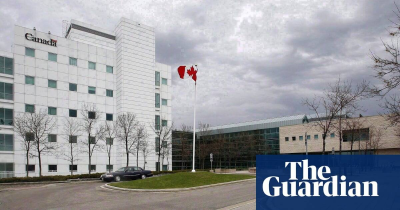The Guardian-Scientist fed classified information to China says Canada intelligence report
February 29, 2024 3 min 615 words
这篇报道揭示了一位加拿大最高安全实验室的科学家向中国泄露机密信息的严重问题。秋香国博士与武汉病毒研究所有着密切关系,此举被加拿大情报机构认定为对国家经济安全的“真实可信的威胁”。情报显示,秋博士不断否认与中国机构的关系,甚至在面对证据时继续欺骗。她的行为涉及向中国病毒研究所寄送埃博拉样本,而没有合作协议,还允许与加拿大利益不符的中国机构员工进入实验室。这一丑闻引起了反对党的强烈反应,指责特鲁多政府允许中国渗透加拿大最高安全实验室,被认为是严重的国家安全失职。这次曝光揭示了政府对事件的不透明处理,加强了对国家安全和病毒研究领域的担忧。
A leading research scientist at Canada’s highest-security laboratory provided confidential scientific information to Chinese institutions, met secretly with officials and posed “a realistic and credible threat to Canada’s economic security” according to newly released intelligence reports.
The dismissal of Xiangguo Qiu and her husband, Keding Cheng has been shrouded in mystery ever since the couple were escorted from Winnipeg’s National Microbiology Laboratory in 2019 and formally fired two years later.
Intelligence assessments released late on Wednesday afternoon alleged that Qiu’s “close and clandestine relationships” with Chinese institutions which showed a “reckless judgment” could have harmed Canada’s national security. The assessments were among more than 600 documents released after a long fight with opposition legislators who had demanded information behind the sackings.
CSIS, Canada’s intelligence agency, concluded that in security-screening interviews, Qiu repeatedly lied about about her relationship with research institutions linked to the Chinese government. Even when confronted with contradictory evidence, “Ms Qiu continued to make blanket denials, feign ignorance or tell outright lies.”
In one instance, Qiu told investigators a 2018 trip to China was a personal vacation. But she eventually admitted the trip was paid for by Wuhan Institute for Virology and that she met the a senior member of the organization during the trip. Investigators also found evidence of application from Qiu agreeing to work for the Wuhan Virology Institute for at least two months each year, with the aim of augmenting China’s “biosecurity platform for new and potent infectious disease research”, according to the CSIS report.
Qiu admitted she sent an Ebola sample to China’s national institute for food and drug control, which was attempting to develop an inhibitor to the virus. But she did so without a material transfer agreement or collaboration agreement.
Qiu also allowed two employees of a Chinese institution, “whose work is not aligned with Canadian interests” access to the lab.
Both Qiu and Cheng filed grievances for their dismissal but have not commented on the allegations in the documents. Their current whereabouts are unknown.
In a letter to Cheng, the public health agency said there were “serious concerns” over his “close personal and professional relationship with Xiangguo Qiu” and his “awareness and lack of candour regarding your own activities and those of Xiangguo Qiu with individuals and entities of a foreign government”.
Qiu was told by the health agency that “during the entire [investigative] process, you did not express remorse or regret” and at times tried to deflect blame onto the public health agency.
“You cannot be relied upon not to abuse the trust accorded to you and to perform your assigned duties in a manner that will reflect positively on PHAC and not pose a security risk to the government of Canada and PHAC,” the agency said.
Canada’s Liberal government has fought the release of the documents for years. The government initially released heavily redacted documents, which left opposition parties frustrated with what they felt was a lack of candour by Justin Trudeau’s government. A recent unified motion by opposition parties finally compelled the release of the investigation.
Health minister Mark Holland acknowledged “a lax adherence to the securities and protocols” at the lab, which is overseen by the public health agency of Canada.
But Holland said “at no time” were there breaches of national secrets or information from the lab.
The Conservative party, which is currently polling far ahead of the Liberals, accused the Trudeau’s government of permitting the Chinese government to infiltrate Canada’s highest-security lab.
“This is a massive national security failure by Justin Trudeau and his Liberal government, which he fought tooth and nail to cover up,” said Conservative leader Pierre Poilievre.

